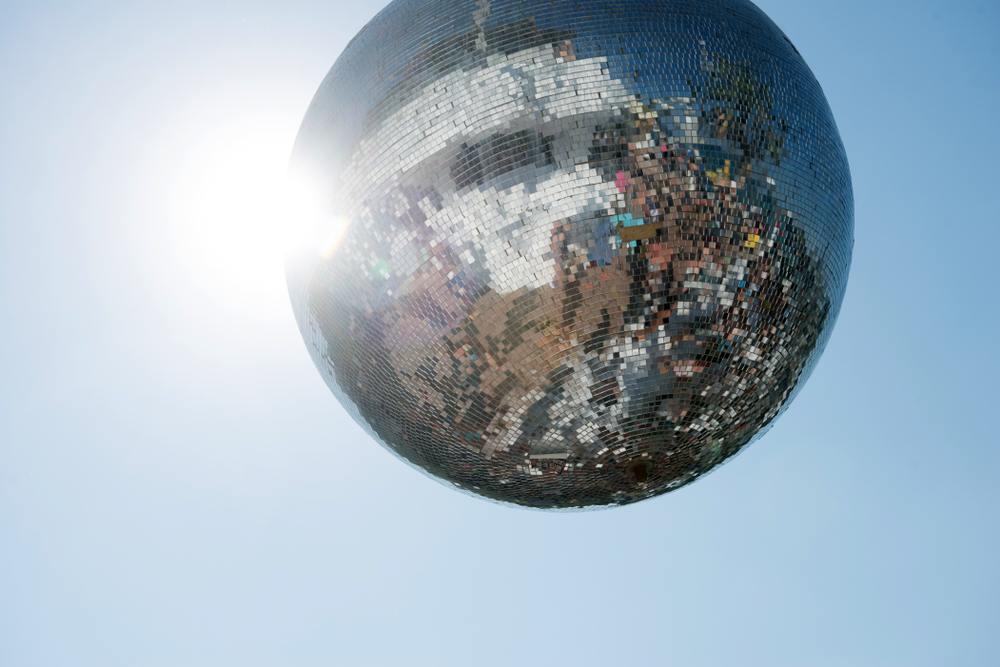It’s true that disco balls have had their place in space for decades now. However, some astronomers argue in a new article that disco balls should also be installed in colleges and scientific institutes. Disco balls, as a group of Scandinavian astronomers put it in their yet-to-be-peer-reviewed work submitted to Physics Education, could change the way we observe the Sun.
The paper’s authors explain how disco balls work in terms of astronomy: “For astronomical purposes, the optics of disco balls are similar to the optics of the better-known pinhole camera,” which is used to safely view solar eclipses and sunspots. This novel solution makes use of the pinhead mirrors found in disco balls to build a one-of-a-kind observation tool.
When science collides with Saturday Night Fever
While pinhole cameras have been widely utilized “as an inexpensive and safe way to observe solar eclipses or sunspots,” the application of disco ball pinhead mirrors has been comparatively unexplored. The scientists, on the other hand, contend that these disco balls have significant advantages.
The researchers underline disco balls’ low cost, claiming that they are “readily available at remarkably low prices.” Furthermore, they feel that people’s associations with disco balls being associated with celebrations and festivities can make science more appealing.
The researchers emphasize the attractiveness by stating, “Additionally, their associations to concerts, discotheques, and parties make them interesting and unexpected objects for demonstrating physics to schoolchildren and the general public.”
Inspiring interest and making learning fun
To test their unusual theory, the researchers positioned a disco ball on a column in the middle of a room where it would be caught by the Sun. This experiment, which took place between March and May 2023 at an unnamed university, not only successfully mirrored images of the Sun across the room but also piqued the interest of university visitors.
“In particular,” wrote the researchers, “children enjoyed the opportunity of spinning the ball and watching the reflected images move across the walls.”
With a total solar eclipse looming in April 2024, these astronomers are determined not just to develop safe means for people to witness the spectacular event, but also to make it available to as many people as possible at the same time. Unlike pinhole cameras, disco balls may generate a shared spectacle.
The researchers are convinced that disco balls may play an important role in education, stating, “We believe that the disco ball is a versatile and engaging tool for educational purposes, deserving wider use both in classroom demonstrations and in public events.”
So, as we prepare for the cosmic dance of the next total solar eclipse, keep in mind that it might just be your friendly local disco ball that steals the show, providing a fun and easy method for everyone to enjoy the cosmic wonders of this universe.










